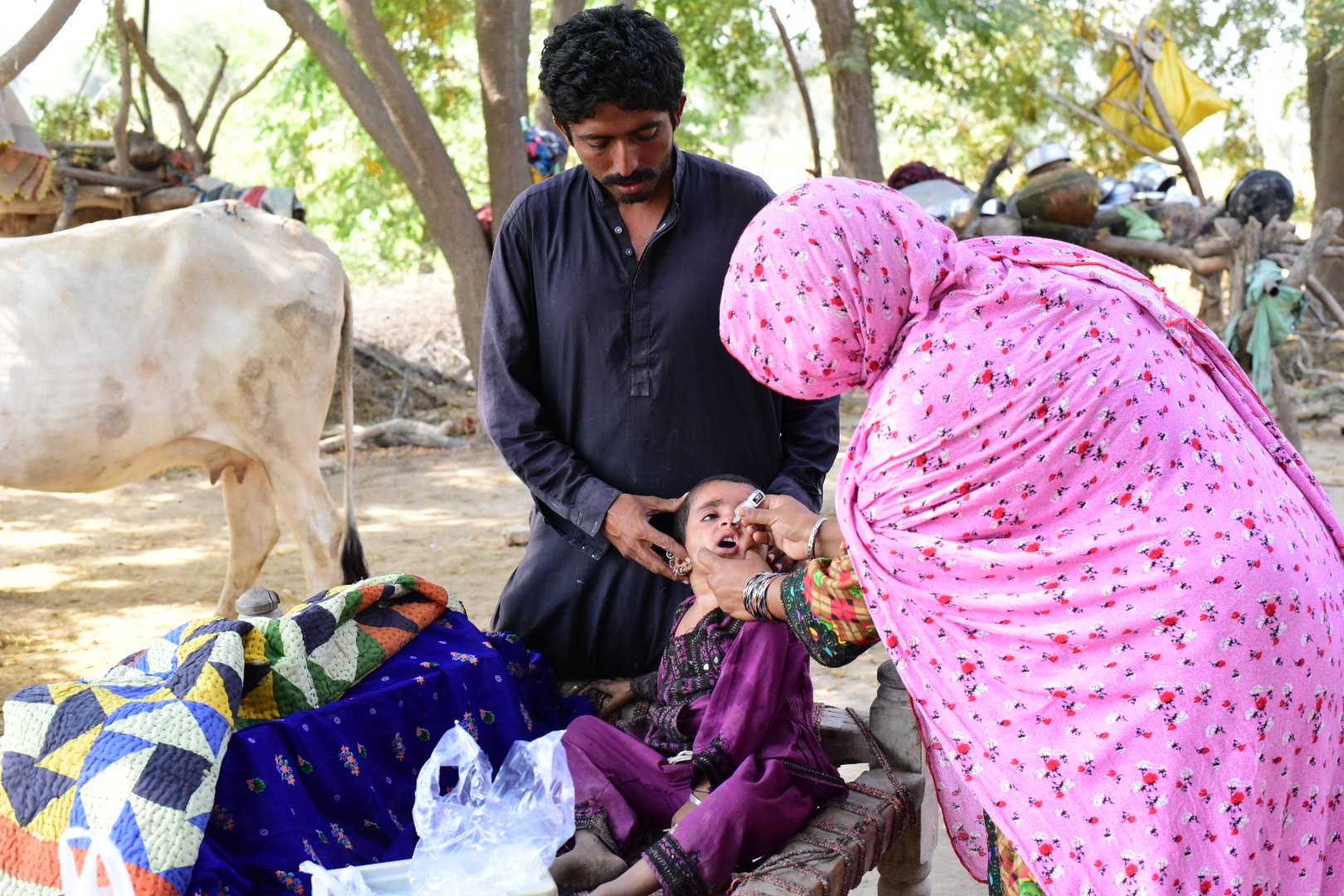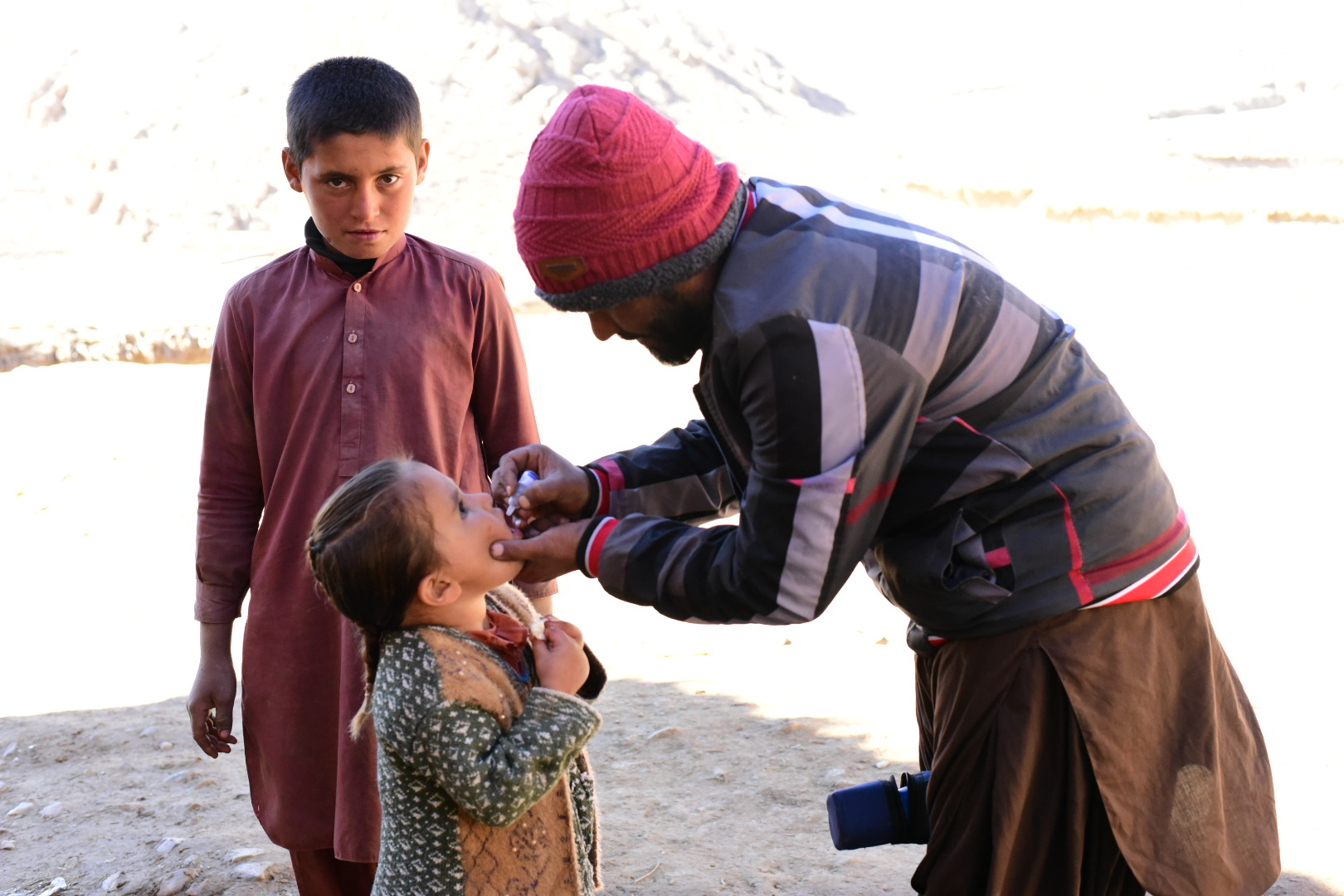The Sole Married LHW of Mach UC In Balochistan
Tahira Khan
Loralai: “Conducting vaccine campaigns in extreme temperatures for meager wages is an arduous task. Rain or freezing temperatures, we must reach remote areas.
Equally disheartening is the behavior of some locals, who ask unnecessary questions or refuse to acknowledge our purpose. Some even shut doors despite knowing our mission, while others ignore our team’s efforts when we diligently visit every door in Mach UC, Kaachi district of Balochistan.”
These sentiments were shared by Naila Bibi*, a Lady Health Worker (LHW) working in Quetta, who requested anonymity.
“As a Lady Health Worker (LHW) and a housewife, enduring the community’s inappropriate behavior towards me, particularly during immunization campaigns and the provision of Family Planning (FP) services, is challenging, Bibi* recalled while talking to The Penpk.com.
“It’s exacerbated when people hurl abusive and insulting comments. We don’t engage in these campaigns for pleasure; we have families to support,” Bibi reflected on the hardships she faces while serving the community’s maternal and neonatal health needs.
Naila Bibi* is one of over 100,000 Lady Health Workers (LHWs) who encounter harassment and abuse while tirelessly serving communities despite their limited mobility.
During polio vaccination campaigns, the prevalence of violence escalates as health workers endure various forms of mistreatment, including verbal abuse, taunting, harassment, derogatory name-calling, character assassination, and even physical assault such as spitting on their faces.

This pervasive hostility makes the door-to-door campaign particularly challenging, especially in a society where cultural norms confine women to the domestic sphere, discouraging their active involvement in public activities.
“My family members mock me for carrying a bag on my shoulders as I go from home to home providing health services. Over the years, I’ve become the only married LHW in my union council, which has placed both cultural and professional burdens on me.
In our conservative society, earning a livelihood feels like a sin at times,” Bibi lamented, sharing her ordeal.
Adding to her struggles, she mentioned that conducting campaigns is challenging because many people believe that knocking on their doors and waiting outside goes against their cultural code of conduct, potentially causing insult to their honor.
In remote regions of Pakistan, like Balochistan, lady health workers (LHWs) endeavoring for professional integration within the healthcare system have faced structural violence fueled by the patriarchal norms deeply ingrained in the country.
“Initially, we were not considered a part of health centers. With the regularization of the service structure, things are different now. However, there are still loopholes that are hindering the full-scale integration of lady health workers (LHWs) into the healthcare system,” remarked Ibra Faiz*, another LHW, on the condition of anonymity.
In this context, Norwegian scientist and peace studies scholar Johan Galtung propagated the theory of structural violence. He argued that within a social structure, violence may not manifest through direct physical acts between individuals.
Violence is indeed a multifaceted issue deeply ingrained within societal structures and systems, often resulting in unequal opportunities and suppression. When examining violence within various contexts, such as the challenges faced by Lady Health Workers (LHWs) during vaccination drives, it’s crucial to understand the broader framework in which these challenges arise.
Moreover, when LHWs voice complaints regarding violence rooted in patriarchal values, such as verbal abuse or physical attacks, with a prevalence rate of 100 percent, it highlights the existence of structural violence.
This form of violence operates within the structures of society, perpetuating inequalities and injustices based on gender norms and power dynamics.

This issue has also been underscored in a study titled “Issues Faced by Lady Health Visitors (LHVs) Working for Polio Immunization Campaigns in District Quetta,” 2018. The study reveals that 70 percent of LHVs encounter difficulties in collecting data as people either refuse to open their doors or slam them shut in their faces.
Training Gaps
Lady Health Workers (LHWs), a cadre of Community Health Workers (CHWs), are tasked with delivering essential health services in remote areas as well as disadvantaged urban communities within the country.
Their key responsibilities encompass conducting immunization campaigns, promoting modern family planning methods, raising awareness about nutrition, and providing maternal and neonatal services.
In order to fulfill these duties, they actively engage in door-to-door campaigns, especially during polio vaccination drives.
However, the mobility of LHWs is hindered by gender-based segregation prevalent in patriarchal contexts, posing significant challenges to their work.
Patriarchy, in general, means male dominance in a family, particularly, and in a society, generally. It means men uphold institutions and have direct control over the decision-making process.
In his 2019 research titled “Lady Health Workers in Pakistan: Tracing Personal and Professional Trajectories Within a Patriarchal Context,” Muhammad Chaudhry elucidates that patriarchal social structures do not necessarily equate to complete deprivation of power, rights, or access to institutions for women.
The study also highlighted that a lack of trust can be attributed to gender discrimination. This lack of trust often stems from the perception that Lady Health Workers (LHWs) are seen as “roaming aimlessly” or ascribed derogatory labels such as “loafers” or “filthy” women working on a western agenda.
These objections are highly gendered as they reflect societal biases that devalue the work of LHWs, considering it an insult in many areas.

Zareef Baloch, a freelance journalist from Pasni, Gwadar, mentioned that the provincial government prefers to hire LHWs on daily wages despite vacant posts in the health department.
He further complains that the provincial government does not only ignore the service structure and pay raise of LHWs but also avoids taking notice of the precarious security conditions that target and even kill them.
They are the ‘unpaid and unsafe Saviors’ of our society and need urgent attention.
Similarly, Lady Health Workers’ Strategic Plan (2022–28) has mentioned that vacant posts should be advertised and filled as per the decided criteria. In addition, the plan envisages government pay scales along with a monthly honorarium, avoiding contractual appointments.
However, 90 percent of LHWs complain about the delay in the provision of monthly salaries. During the immunization campaigns, they work for 500 rupees per day, which is low, and that too takes more than a month to get paid.
Additionally, a survey indicated that 63 percent of male members of households do not earn and rely on the salaries of lady health workers (LHWs). As a result, 87 percent of LHWs reported having no control over their salaries due to the patriarchal, suppressive attitudes prevalent in our society.
Read More: https://thepenpk.com/centennial-struggle-for-khanewal-peasant-land-rights/
Moreover, the Lady Health Workers’ Strategic Plan (2022-28) has highlighted the slow funding process, causing delays in releasing salaries or honorariums.
Besides, budget diversions towards other government sectors have decreased the fiscal capacity of the health department.
It is important to note that due to cultural barriers and other constraints, Lady Health Workers (LHWs) were hesitant to share their experiences, and this issue has been under-researched, creating a critical gap that requires urgent attention.
The names have been changed* to protect the identity of the worker.
Tahira Khan is a freelance journalist from Loralai, Balochistan. She can be accessed at tahiraadamkhan@gmail.com
All information and facts provided are the sole responsibility of the writer.

Comments are closed.